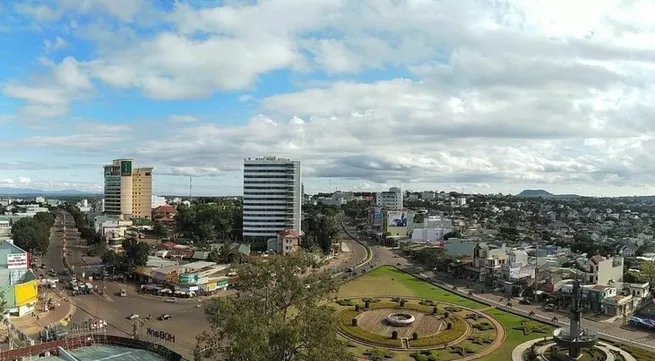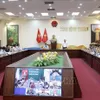Master plan for Central Highlands region in 2021-2030 period approved

Under the plan, the Central Highlands will be developed towards a green and circular economy, with the formation of large-scale industrial crops, fruit trees, flowers, and renewable energy centres for the whole country as well as high-quality tourist destinations that attract domestic and international tourists.
The region will have an ecological space rich in cultural diversity, while forest ecosystems will be conserved and developed, and modern and harmonious infrastructure will become important platforms to connect the Central Highlands with major economic centres in the country and promote international economic integration.
Meanwhile, the region’s cultural identity will be promoted and playing the role as a foundation for development, and harmonious development between the economy and culture, society, and environmental protection ensured.
Specifically, the region will focus on promoting high-yielding, ecological, organic and large-scale agriculture production in association with forming concentrated agricultural production areas using high technologies.
Agricultural centres associated with regional high-tech agricultural zones and economic corridors are expected to be formed, along with linkages in agricultural product value chains among localities.
The region will concentrate on developing the forestry economy and improving the lives of forest workers, according to the plan.
The region will sustainably restructure its forestry industry in line with the implementation of national target programmes, while developing the forestry economy, encouraging the afforestation in areas with suitable conditions, and expanding material regions for processing facilities.
In terms of industry, the region will prioritise the development of the processing-manufacturing industry and sectors with high added values, high technology contents and environmental friendliness in association with optimising advantages in raw material resources in the region.
It will form deep processing industrial zones and clusters, and inter-sectoral industrial linkage associated with central urban areas and economic corridors, while effectively connecting with the industrial sector of the central-central subregion, the south-central subregion, and the southeast region.
At the same time, the Central Highlands will promote the development of the mechanical industry to serve the agriculture, forestry, agricultural and forestry product processing industries, mineral exploitation and processing, and handicraft industries in the region, the plan clarifies.
Besides, it will promote the growth of the service sector in association with the development of the agriculture and industry sectors, while focusing on developing supply and consumption markets in the region and outside the region along corridors connecting it with major seaports to international markets.
Under the plan, the Central Highlands will also ensure the harmonised growth of modern and traditional trade to suit the special conditions for urban and rural areas, while increasing the cross-border trade activities based on expanding the infrastructure system at major international border gates.
The master plan also highlights the need to develop logistics services associated with economic centres and corridors connecting intra-regional and inter-regional trade activities and support the development of manufacturing industries associated with domestic and international markets, while developing eco-tourism, resorts, and cultural tourism associated with preserving and promoting the cultural values and identities of the Central Highlands ethnic groups, and strengthening connections and improving service quality in the value chain of specific tourism products in key areas.
Tags:





